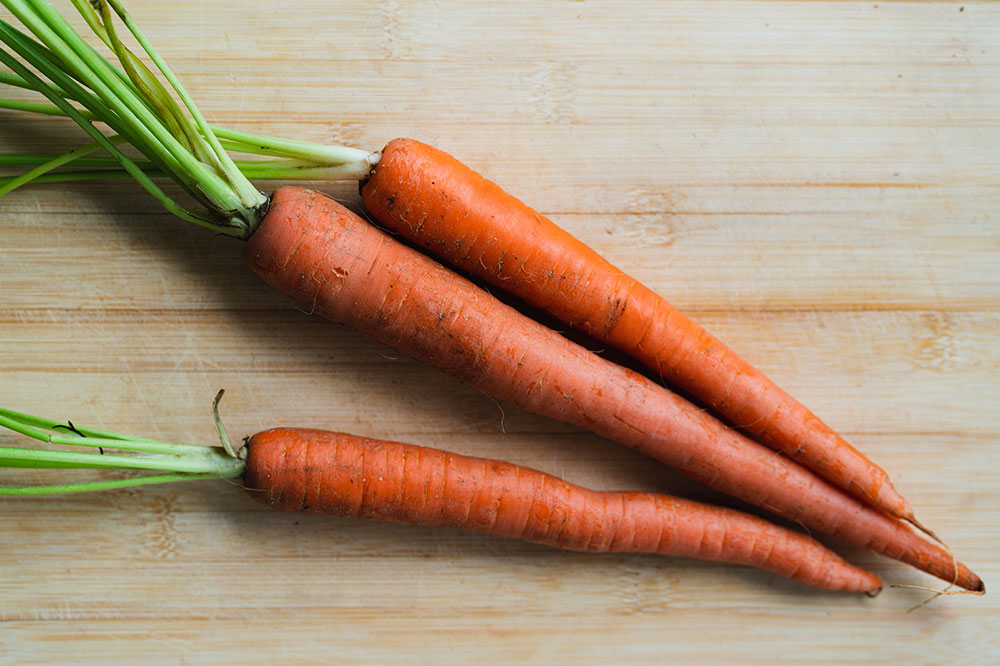Comprehensive Guide to the Top 10 Nutritional Foods for Enhancing Vision Health
This extensive guide highlights the top 10 nutrient-rich foods essential for maintaining and improving eye health. From carrots and kale to fish and green tea, learn how incorporating these foods into your daily diet can help prevent age-related eye conditions, support visual clarity, and promote overall ocular wellness. A balanced diet with these nutrients offers a natural, effective way to safeguard your vision for years to come.

Comprehensive Guide to the Top 10 Nutritional Foods for Enhancing Vision Health
Maintaining optimal eye health is increasingly important in today’s world, especially given the rise in vision-related issues such as myopia, hyperopia, age-related macular degeneration, and cataracts. Factors like aging, environmental stressors, and dietary shortcomings contribute to declining eye health. While corrective measures like glasses and contact lenses provide temporary relief, a sustainable and effective approach to preserving and improving vision involves proper nutrition. Consuming a balanced diet rich in specific nutrients can significantly support eye structure, function, and longevity. This comprehensive guide explores ten essential foods that foster healthy eyesight and provide protective benefits against common and age-related eye conditions.
Incorporating these foods into daily meals isn't just beneficial for maintaining good vision but also supports overall health. Let's delve into each of these nutritional powerhouses and understand how they contribute to eye health, along with practical tips on including them in your diet:
Carrots
Renowned for their high beta-carotene content, carrots are a quintessential vegetable for eye health. Beta-carotene, when consumed, converts into vitamin A in the body, a crucial nutrient that supports night vision, visual acuity, and color perception. Vitamin A deficiency is a common cause of blindness in underdeveloped regions, emphasizing the importance of carrots in preventing such deficiencies. Regular intake of carrots has been associated with a reduced risk of age-related macular degeneration (AMD) and other degenerative eye conditions. Eat them raw, cooked, or in salads to maximize their benefits.
Kale
Kale is often dubbed a superfood, partly because of its dense nutritional profile. This dark leafy green provides an excellent source of antioxidants such as beta-carotene, lutein, and zeaxanthin. These carotenoids accumulate in the retina and lens, protecting against oxidative stress and harmful blue light exposure. Studies have indicated that regular consumption of kale can improve visual acuity, reduce glare sensitivity, and may diminish dependence on corrective eyewear over time. Incorporate kale into smoothies, salads, or steamed dishes for optimal health benefits.
Blueberries
Blueberries are rich in anthocyanins—potent antioxidants that offer exceptional protection to eye tissues. These compounds are known to cross the blood-retina barrier and combat oxidative damage to the retina and optic nerve. Consuming blueberries regularly has been linked to a decreased incidence of age-related macular degeneration, diabetic retinopathy, and glaucoma. Their anti-inflammatory properties also help reduce eye strain and fatigue. Snack on fresh blueberries, add them to cereal, or mix into yogurt for a tasty vision-boosting treat.
Eggs
Eggs are a versatile and nutrient-dense food providing key eye health nutrients like lutein, zeaxanthin, vitamin E, zinc, and omega-3 fatty acids. These substances work synergistically to protect the cornea, support the regeneration of damaged tissues, and prevent the development of cataracts. Eggs are particularly beneficial for aging populations or those prone to degenerative eye conditions. Consider boiling, poaching, or making omelets with eggs as part of your daily diet to harness their full benefits.
Fatty Fish
Fish such as salmon, trout, sardines, and mackerel are excellent sources of omega-3 fatty acids, especially EPA and DHA, which are fundamental for maintaining retinal structure and function. These healthy fats help to prevent dry eyes, reduce inflammation, and preserve visual acuity over time. Regular fish consumption has been associated with a lower risk of developing age-related macular degeneration and other inflammatory eye diseases. Incorporate grilled or baked fish into your weekly meal plan for best results.
Oranges and Citrus Fruits
Citrus fruits like oranges, grapefruits, lemons, and limes are packed with vitamin C, a powerful antioxidant that combats free radicals generated by environmental toxins, pollution, and UV exposure. Sufficient vitamin C intake is linked with a decreased risk of cataracts and AMD. These fruits are also hydrating and provide other nutrients that support overall eye health. Freshly squeezed juice, salads, or snacking on whole fruits are excellent ways to boost your vitamin C intake.
Lean Meats
Lean meats such as turkey, chicken, and beef are vital sources of protein, zinc, and B vitamins. Zinc, in particular, is concentrated in the eye tissues and plays a crucial role in transporting vitamin A from the liver to the retina. Adequate zinc levels help prevent night blindness and slow the progression of age-related macular degeneration. Incorporate lean cuts of meat into your diet a few times a week, grilled or roasted, to support healthy vision.
Zinc-rich Oysters and Vegetarian Sources
Oysters are among the richest sources of zinc, a mineral essential for maintaining the health of the retina and preventing degenerative diseases. Zinc supports melanin production in the eyes, offering protective benefits. For those who prefer plant-based options, zinc can be obtained from beans, nuts, seeds, whole grains, and dairy products. Ensuring sufficient zinc intake is vital for preserving night vision and overall ocular health.
Seeds
Seeds such as flaxseeds, sunflower seeds, and chia seeds are nutrient powerhouses packed with omega-3 fatty acids, vitamin E, and calcium. These nutrients help combat oxidative stress, reduce inflammation, and support the structural integrity of eye tissues. Regular inclusion of seeds in your diet can help delay age-related decline in vision and promote healthier eyes. Sprinkle seeds on salads, cereals, or blend into smoothies for a nutritious boost.
Green Tea
Green tea is rich in flavonoids, including catechins like gallocatechin, which provide antioxidant and anti-inflammatory benefits. Green tea consumption helps protect retinal cells from blue light damage and inhibits proteins that cause dry eyes and irritation. For contact lens wearers or individuals exposed to high screen time, green tea can be a natural way to promote eye comfort and reduce oxidative stress. Drinking a couple of cups daily can be a simple addition to your health routine.





